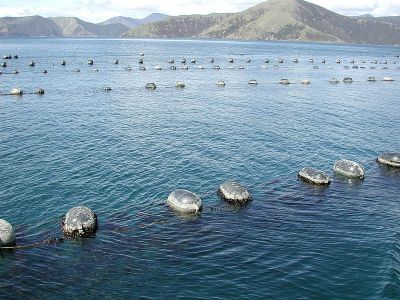Improving mussel quality

Mussel_farm, fot. public domain
The European mussel industry has been held back by substandard product qualities, which leads to increased wastage. Scientists used new technology and best practices to overcome challenges in the supply chain, thus minimising wastage and improving profitability.
Current suboptimal practices in grading, handling, storage and
transportation are to blame for poor mussel production. The EU-funded
MUSSELSALIVE (Development of best practice and new technology for
grading, handling, transportation, conditioning and storage of mussels
for SMEs in the European mussel industry) project sought to increase the
profitability and competitiveness of small businesses in the European
rope mussel industry by minimising waste and breakage from harvest to
market.
Researchers aimed to improve grading technology and to develop an efficient storage/transportation unit as well as a mussel-holding recirculation system. They also wanted to define standard protocols for transporting and storing rope cultured mussels.
The consortium conducted market research to assess consumer requirements and sent out several questionnaires targeting consumers and mussel producers. They also performed experiments, which showed that temperature, oxygen consumption, ammonia production and water flow are all critical factors influencing the metabolism and survival of the mussels.
MUSSELSALIVE proved it was possible to market first-class live mussels even after they had been held in a recirculation holding system for 33 days without additional feed. These results revealed opportunities that will greatly benefit the shellfish sector by enabling greater flexibility in harvesting and dispatch with reduced weather and logistical constraints.
Moreover, producers will not need to harvest every day or be tied down by the need to have a transport system constantly ready and operating. The mussel industry will also benefit by being able to trade mussels before the occurrence of an algal bloom leading to closure periods. Lack of mussels for retailers, wholesalers and consumers can be avoided by storing live mussels during closure periods.
The new technology and best practices introduced by the project will help to increase survival and food quality, thereby improving profitability and competitiveness. Improved yields and year-round availability of rope mussels will help improve the economy of rural coastal areas by creating new jobs.
published: 2015-09-07